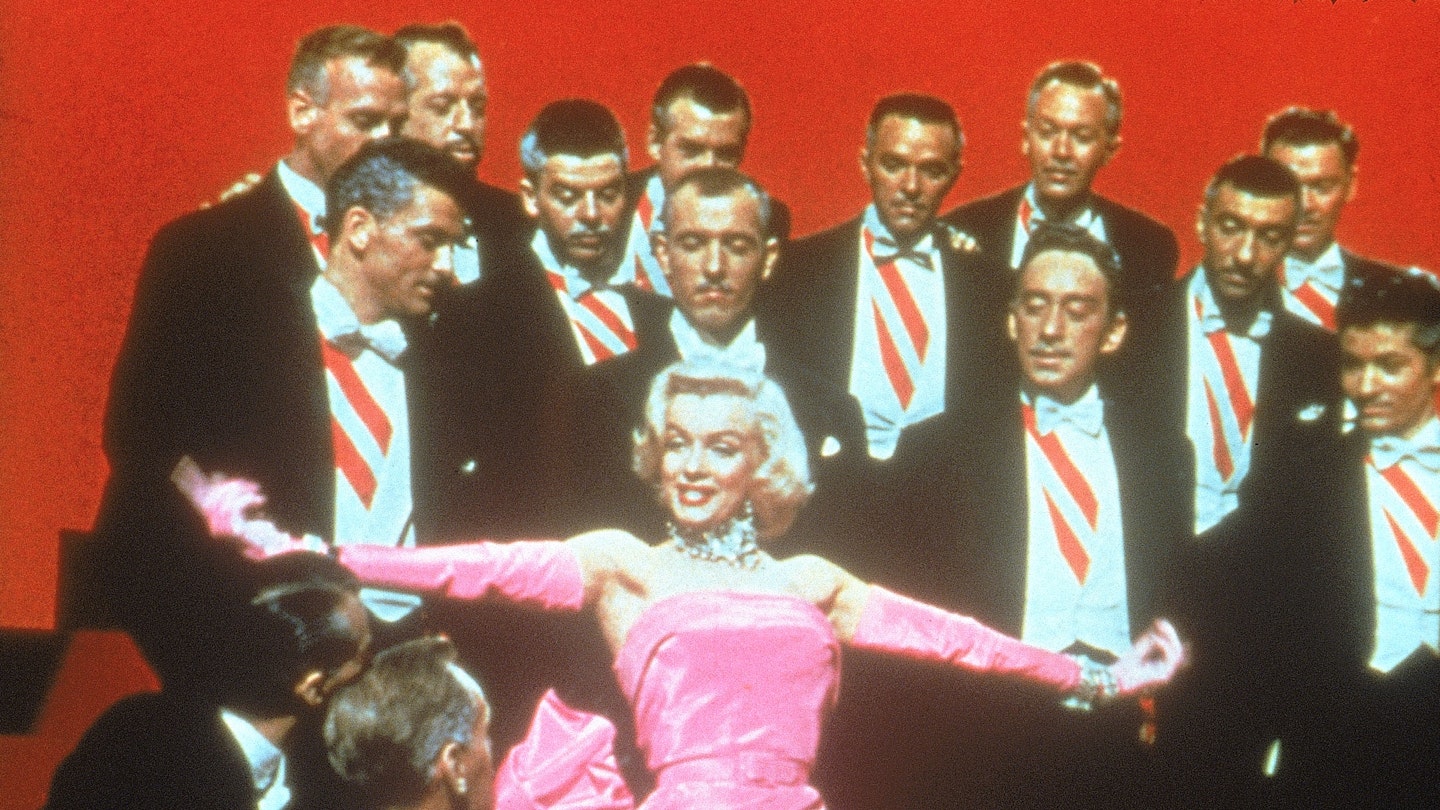There’s a lot of talk at the moment about the importance of better, and more, film roles for women. Right now, only 12% of major Hollywood films have a female lead, and only 7% of wide-release feature films have a female director. Those numbers have been roughly steady for years – but it wasn’t always that way. During Hollywood’s ‘Golden Age’, in the 1930s and 1940s, the ‘woman’s picture’ was a major box-office driver and awards contender, and it launched the careers of some of the most powerful female stars who ever lived. Now many of these films were soppy romances without much in the way of girl power – but some gave us heroines who remain startlingly dynamic, powerful and air-punchingly inspiring.
I’m No Angel (1933)
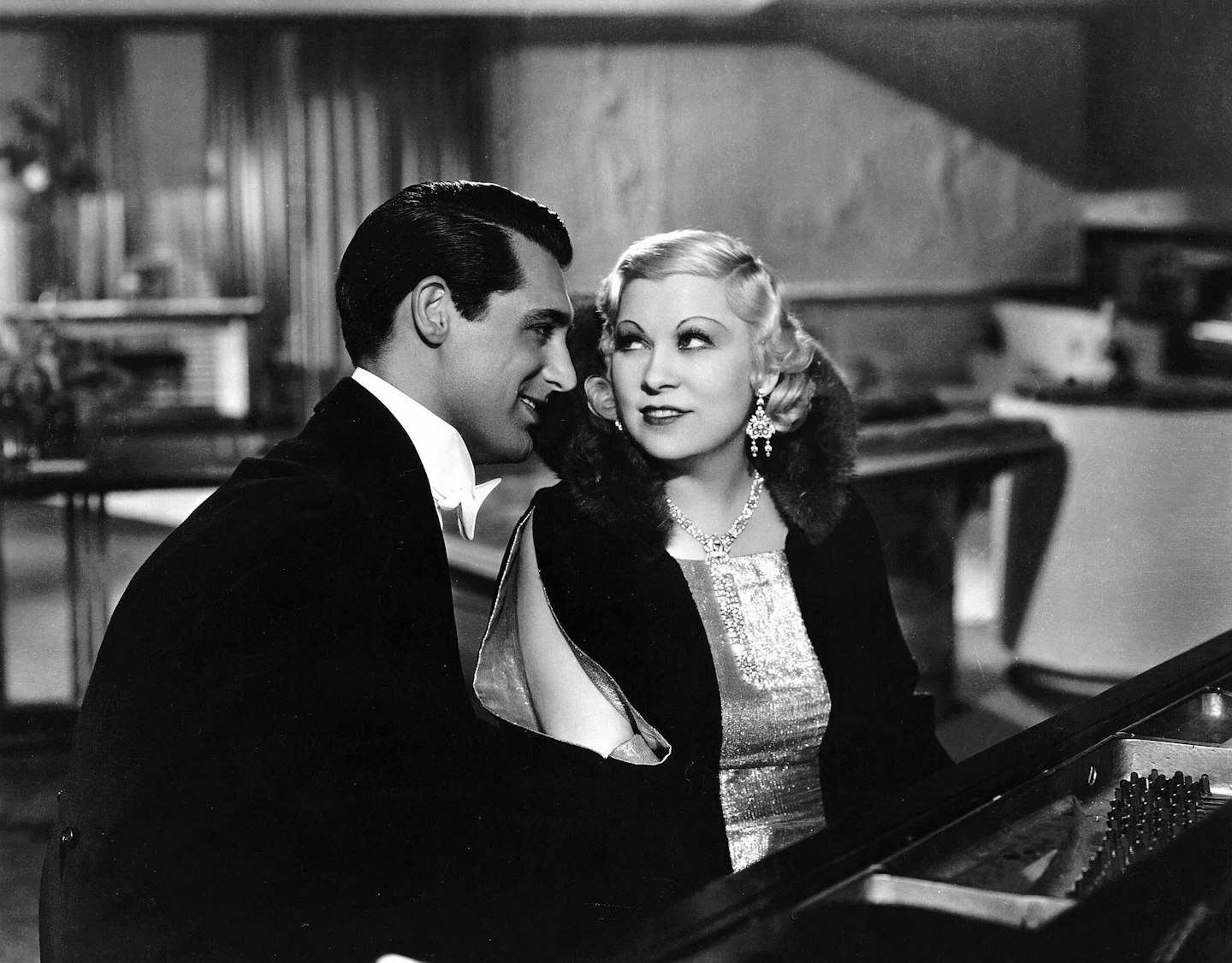
If you’re talking early feminist icons and not talking Mae West, you’re doing it wrong. Sure, she was famous as a blonde bombshell – maybe the original platinum superstar – but she was also a playwright and comedian of considerable power, who controlled her own career and her own life like few before or since and even went to jail for her freedom of speech. In this tangled web of a love story, she ends up fighting an entire sexist justice system to be accepted as the woman she is and live her own life. Cary Grant (a man who knew the importance of a great leading lady) played her smitten beau; West’s burlesque star could take him or leave him. But, you know, she was feeling generous that day so she takes him.
Now Voyager (1942)
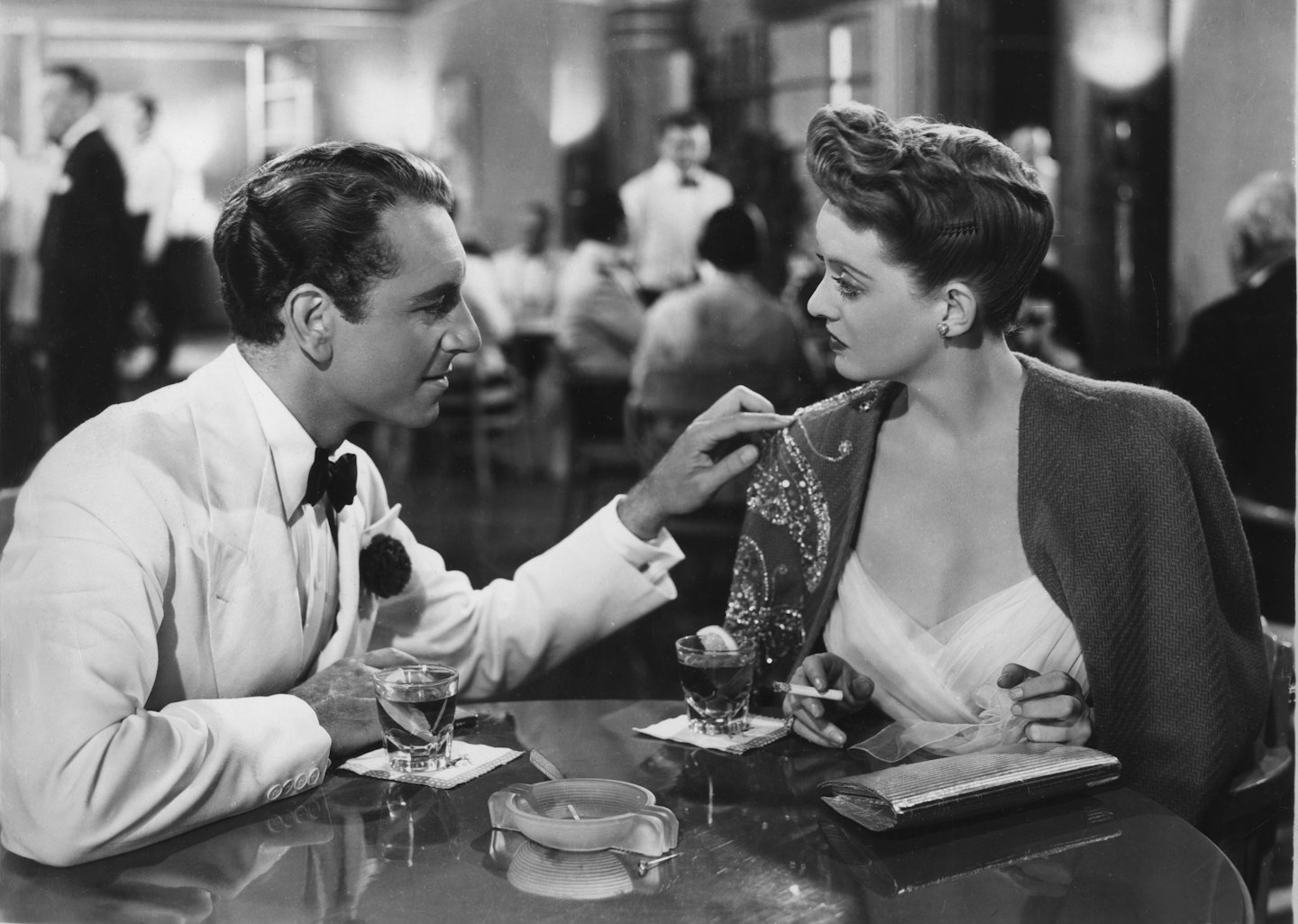
To call this a feminist masterpiece would be an overstatement, since it’s about a woman getting out from under her domineering mother’s thumb, having a makeover and falling in love with a man she can’t have. But since the woman is played by Bette Davis, she also shows real steel in her spine beneath all the trembling and sighing and romantic misadventures on fancy cruises. Once her Charlotte is freed from her mother’s control and realises that there is another life out there, she begins to stand up for herself and to take on all comers – including the man she loves – to fight for a life of her own. Plus, it’s a great three-hankie weepie, and we all need one of those now and again.
Johnny Guitar (1954)
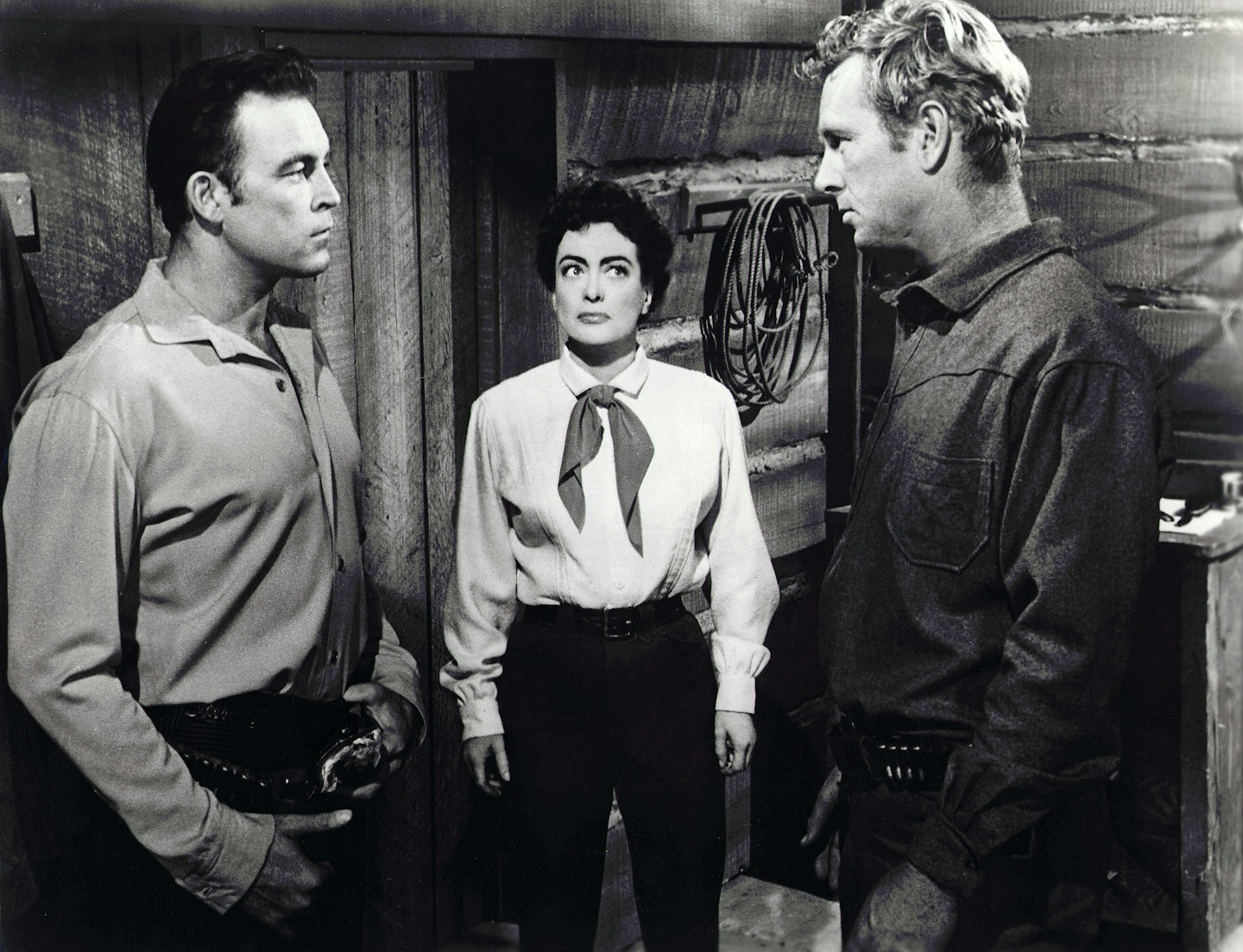
Joan Crawford, like Davis, specialised in women’s pictures and demanded the meatiest roles from studio executives – and she had the power to get them. She was instrumental in getting this slightly psychedelic Western made, a film notable for the fact that its lead and its villain are both female. Vienna (Crawford) runs a saloon but finds herself in a feud with the locals, led by rancher Emma (Mercedes McCambridge). Emma holds Vienna responsible for the crimes of a local gang, while Vienna refuses to play nice over the imminent arrival of the railroad. The men – including the titular Johnny Guitar, one of Vienna’s exes – are basically reduced to supporting roles. But hey, guys, it’s OK: you get to kick ass occasionally before taking the back seat again. There’s a good boy.
Gentlemen Prefer Blondes (1953)
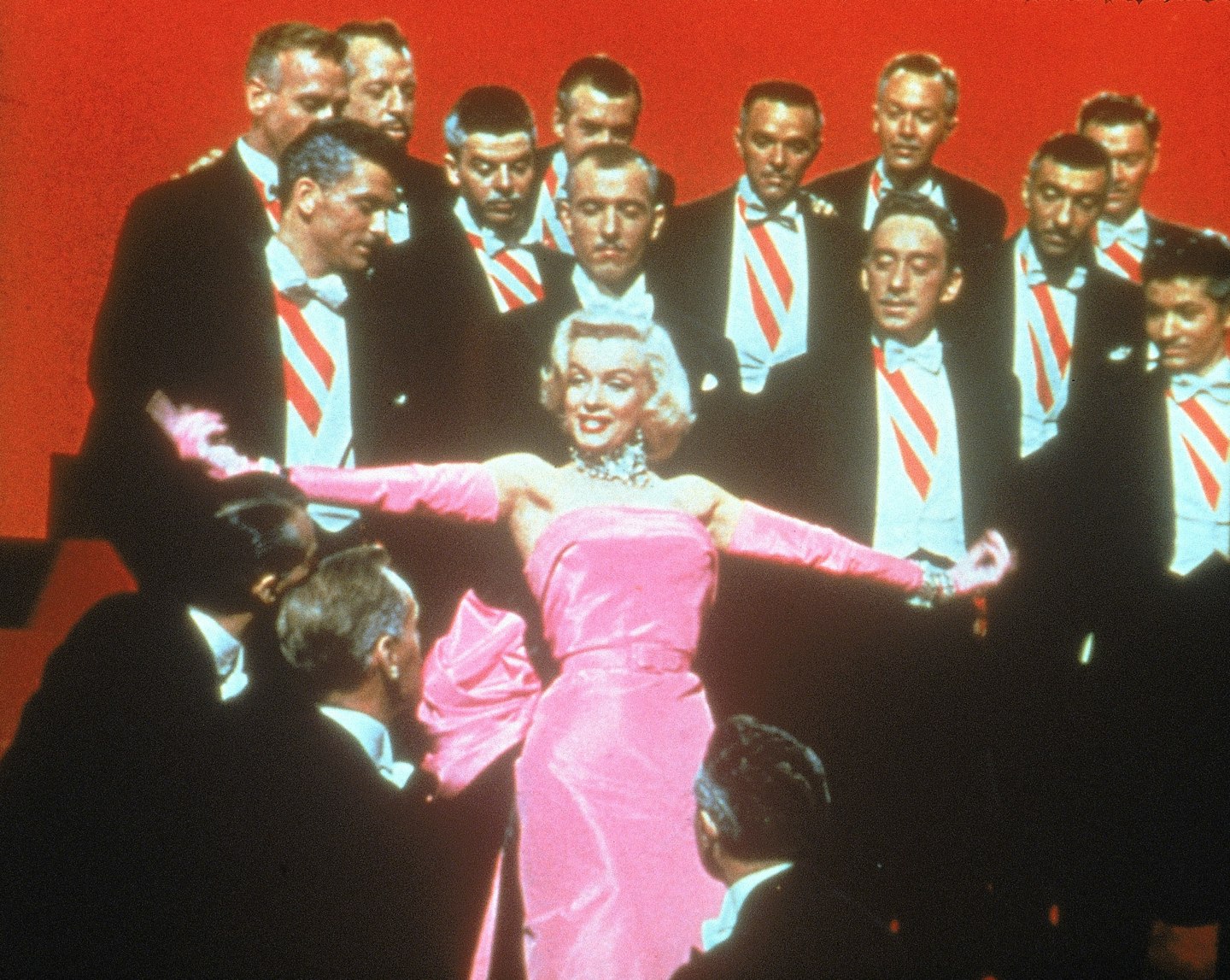
At heart this dazzling technicolor musical is all about friendship, with two women working together to outwit men at every turn. Marilyn Monroe and Jane Russell are the nightclub chanteuses who slay all day, taking a trip to Paris on one gentleman’s dime and romancing others en route. It’s not that they’re in need of money – they’re a headlining act – but that they’re boundless in ambition and amused by the way men throw themselves at their feet. The story is based on the classic novel by Anita Loos, one of the great wits of the early 20th century (check out her sequel, But Gentlemen Marry Brunettes, for more laughs), and its stage musical adaptation. And even allowing for the fact that much of the plot revolves around marrying rich, Loos and Monroe’s defence of gold-digging is one for the ages, and surprisingly hard to argue with.
The Thin Man (1934)
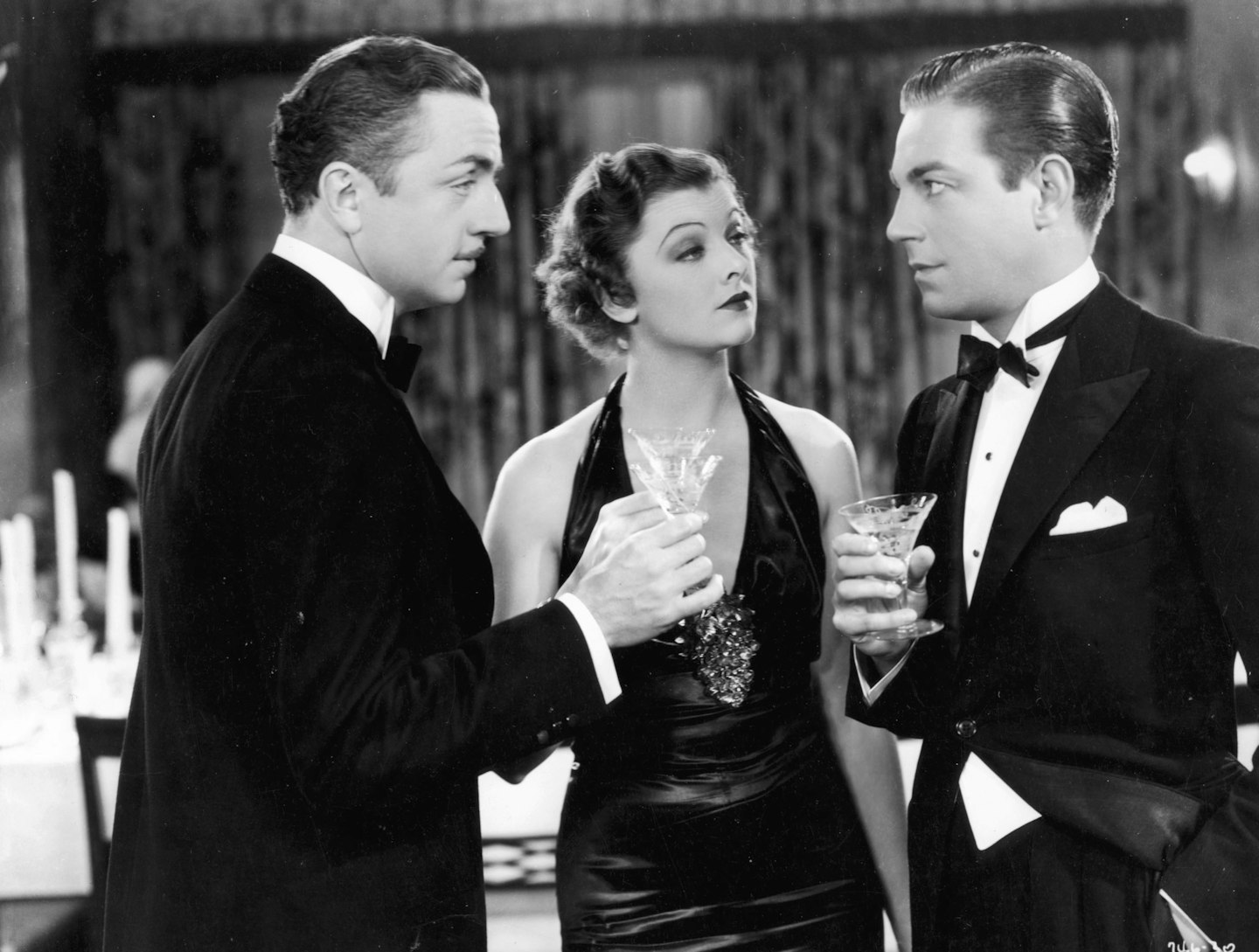
Just like His Girl Friday, there’s something really encouraging and empowering about seeing a couple working together as equals, and trading witticisms like they’re on the stock exchange. Nick Charles (William Powell) is a hard-bitten, hard-drinking detective; his wife Nora (Myrna Loy) is a stylish heiress, and they solve mysteries together just for the lolz. This first film has a satisfyingly meaty case for them, //and// a dinner party denouement with all the suspects gathered together, Miss Marple style. All this, and more martinis than an entire season of Sex and the City. It’s just joyous.
His Girl Friday (1940)
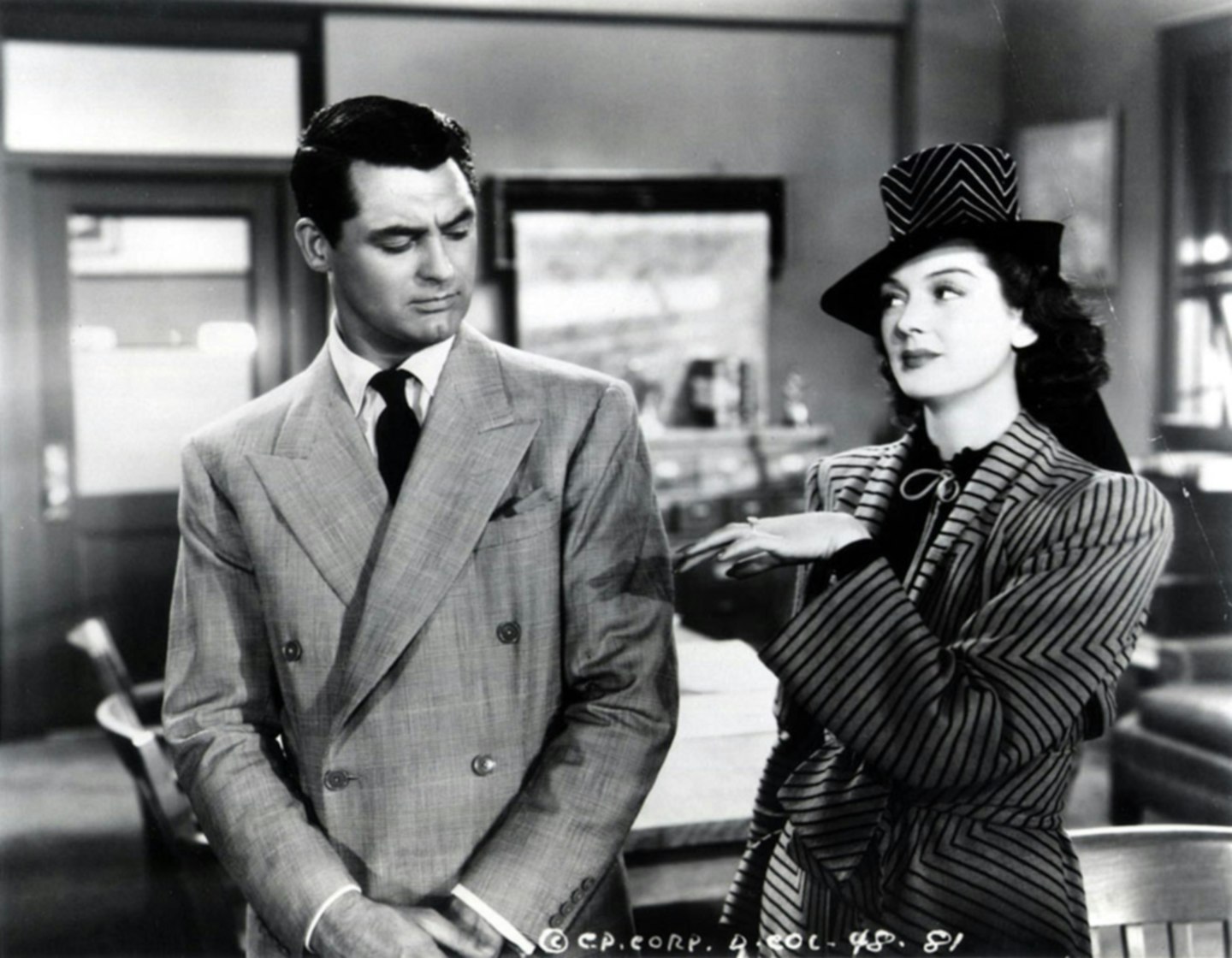
This should be your first port of call if you’re dipping your toes into black-and-white movies for the first time. Our heroine is star reporter Hildy Johnson (Rosalind Russell), who is planning to retire from the newspaper business – and her ex-husband and editor, Walter Burns (Cary Grant) – to get married. She swans into her ex’s office the way we’d all like to, in an impossibly stylish belted coat and working a fashion forward hat, and he suspends everything in order to win her back personally and professionally. And the professional side is front and centre in that campaign, because this is a pairing of equals. If you’ve ever dreamed of being valued for more than the way you look, this is maybe the sexiest film ever made.
Adam’s Rib (1949)
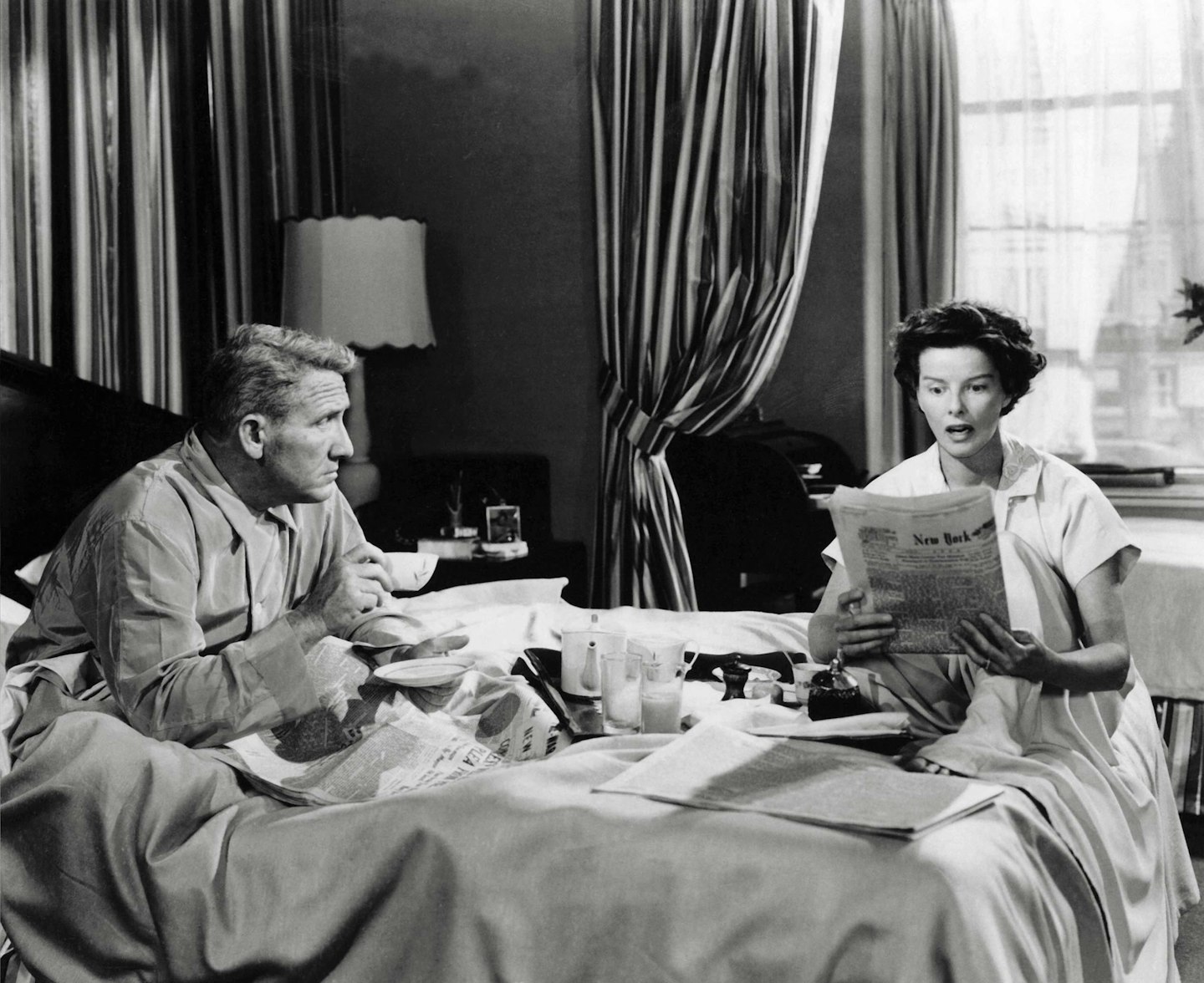
Throw a dart at Katharine Hepburn’s filmography and you’ll hit brilliant women: check out her Jo in Little Women, The Lion In Winter, Desk Set or Woman Of The Year. In fact, the four time Oscar winner (sorry, Meryl) was only ever bad when she had to try to simper at some chinless hero, because there’s no way you could buy her as a push-over. But this is arguably the most directly feminist of the bunch, with Hepburn and her partner (on and off screen) Spencer Tracy as warring lawyers on either side of a case of spousal attempted murder. Hepburn’s final plea to the jury is that they consider the case as if the sexes were reversed in order to reach a fair decision; as basic a summation of feminism as you’re ever likely to get.
READ MORE: Films To Make A Feminist Heart Soar
READ MORE: 7 Films To Watch This Summer If Superheroes Just Aren't Your Thing
